Blog
Words. Wisdom. Winners.
3 ingredients of a good team
People who:
1. Are independent learners.
2. Work well together, without prejudice.
3. Give each other feedback to grow.
3 hacks for maximum productivity
- No notifications except calls.
You can set a work mode, so only the notifications you have permitted will come through. - No unread banners on any app.
They can be a lot more distracting than we care to admit. - Time limits for all social media apps with passwords.
This should be set by a family member and not you.
In case you REALLY need to check something out, they can open it for you and that won’t turn into you scrolling through the app for hours.
The difference between toxic and healthy culture
In toxic cultures, you’re rewarded for staying busy.
In healthy cultures, you’re rewarded for being productive.
The best things in life
The best thing you can do to improve your health – Cut out refined sugar and soda.
The best thing you can do to improve your wealth – Stop buying things you don’t need.
The best thing you can do to improve your sleep – Stop staring at the phone right up until bed.
The best thing you can do to improve your relationships – Be someone you’d want to be around.
The best thing you can do to improve your mind – Meditate.
Each of these requires one to alter their life, their mindset, and their habits.
Not easy. But necessary!
What movies teach us about people
A movie that you fell completely in love with the first time you watched it?
It was The Dark Knight for me!
The script, the music, the characters — everything was on point and it blew my mind away!
I loved it so much that I watched it again. And again. And again!
By the time I was watching it for the 6th or 7th time, I started noticing its flaws.
I had spent so much time with it, that I couldn’t help but notice its slips.
Yet, it remains my all-time favourite movie.
I chose to ignore the slips because what I experienced when I saw the movie was way too wonderful an experience!
What else works like movies?
People!
The more time you spend with people, the more flaws you see!
Instead, why not shift the focus on how you feel when you are with them?
I wish I would have…
Every time when we think, “I wish I would have done that differently”, we are thinking about something we can’t change.
What’s done has been done.
No amount of thinking will change that.
No amount of regret will change that.
What we can change is what we do next.
So, here are better questions to ask.
“What stopped me from doing whatever it is that I should have done?”
“Do those things still exist in my life?”
“What was it that I did not know back then?”
“Do I know it now?”
Everyone makes mistakes. But not everyone learns from those mistakes.
There exists something between success and failure called reflection!
Regret will only keep you in the past. Reflection will bring you out of it.
Don’t take my advice on this…
We often seek advice when we have multiple options in front of us.
And we are unsure of which option to pick!
There begins our journey of finding the right answer.
We look for people who have taken similar decisions before, hoping that we will get an answer!
However, there’s one thing that we often forget in the process.
Their experiences are not ours.
Their advice will be based on the outcome of their decisions.
Which could be driven by the advice of someone else – that’s even worse!
I would rather follow my gut.
If we ask ourselves honestly, we will get the answer — an answer which would be better than anyone else’s!
PS: Don’t take my advice for this. Build yours :)
Why do we lie?
Remember that one time, when we did something wrong as a kid?
But, we decided to own up to our mistake and tell the truth to our parents?
And we got scolded?
Remember that one time, when we did something wrong as a kid?
But, we decided to own up to our mistake and tell the truth to our teachers?
And we got scolded?
And remember that one time, when we did something wrong as a kid?
But, we decided to lie to everyone?
And we weren’t scolded!
That’s why we lie.
Are we doing the exact same thing to people around us?
By not appreciating someone for their vulnerability and truth, all we do is cultivate liars.
This is how you go debt-free!
There is a kind of debt that is rarely talked about.
That’s emotional debt.
I cannot leave this job, because I had promised my boss I would stay.
I cannot leave this job, because I have dreams to fulfil for my family.
I cannot go back to work, because I had promised my kids I would be around.
Emotional debt is intangible. It doesn’t exist.
And because we don’t pay for it everyday, we keep on accumulating interest on it.
Here is what helps.
Treating emotional debt as financial debt.
Take it only when you need it.
Take it only when you can pay it back.
And pay it in monthly instalments.
Emotional debt has killed more people than financial debt ever will.
Success is absolute
Most of us think of success as relative.
“Am I more successful than him?”
“Is she more famous?”
“How can I become wealthier than her?”
But success is absolute. It’s what you feel within.
It has only one measurement – the one defined by you.
Success is not relative. Achievement is.
Most often we confuse achievement with success.
Subscribe to warikoo wanderings
